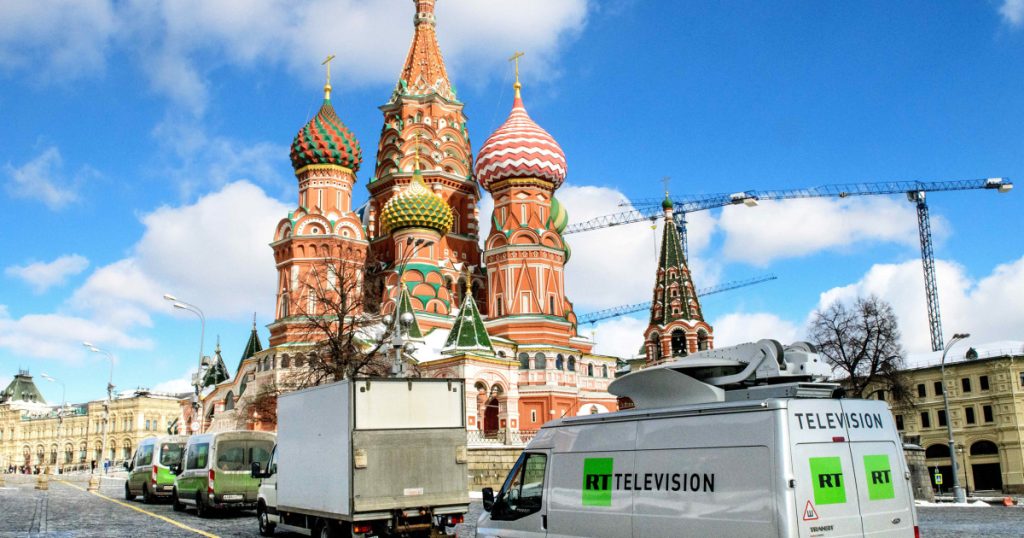Meta, the social media giant, made headlines on Monday by announcing that it would be banning Russian media outlet RT from its platforms. This decision came after the Biden administration accused RT of acting as an arm of Moscow’s spy agencies. A Meta spokesperson stated that after careful consideration, they have expanded their ongoing enforcement against Russian state media outlets, including Rossiya Segodnya and other related entities. The ban will be implemented globally with the intention of targeting foreign interference activities.
The Biden administration further solidified the accusations against RT by imposing new sanctions on the media outlet and declaring it to be a fully fledged member of the intelligence apparatus and operation of the Russian government in relation to the war in Ukraine. U.S. officials also accused RT of conducting covert information warfare operations around the world on behalf of Russia’s spy agencies. James Rubin, coordinator for the State Department’s Global Engagement Center, described RT as a platform where propaganda, disinformation, and lies are spread to millions, if not billions, of people globally.
In addition to these allegations, U.S. officials uncovered hidden operations carried out by RT around the world. For instance, in Africa, RT is believed to be behind an online platform called “African Stream” while concealing its role. In Germany, it is said to secretly operate a Berlin-based English-language site known as “Red”, and in France, RT allegedly hired a journalist in Paris to conduct influence projects targeted at a French-speaking audience. The Biden administration is taking further steps by imposing sanctions on the state-funded broadcaster overseeing RT, TV-Novosti, as well as another state media company, Rossiya Segodnya, and its director, Dmitry Kiselyov.
These actions are not the first time the U.S. has accused Russia of attempting to interfere in various global affairs. In the past, the U.S. has accused Russia of interference in U.S. elections by sowing discord and division. In 2018, the U.S. Justice Department announced indictments against 12 Russian nationals for cybercrimes related to interference in the 2016 elections. These allegations have been denied by Russia. Meta had already begun limiting Russian state-controlled media on its platforms two years ago, and the enforcement of the ban on RT is expected to roll out in the coming days.
Meta’s apps, which include Facebook, Instagram, WhatsApp, and Threads, have become crucial spaces for information dissemination and communication on a global scale. By banning Russian state media outlets such as RT, Meta is taking a stand against foreign interference activities and ensuring a safer environment for its users. The decision reflects the growing concerns over the spread of propaganda and disinformation through social media platforms and highlights the ongoing efforts by governments and tech companies to address these issues. Ultimately, the ban on RT by Meta represents a significant move in the ongoing battle against foreign influence and manipulation in the digital age.


